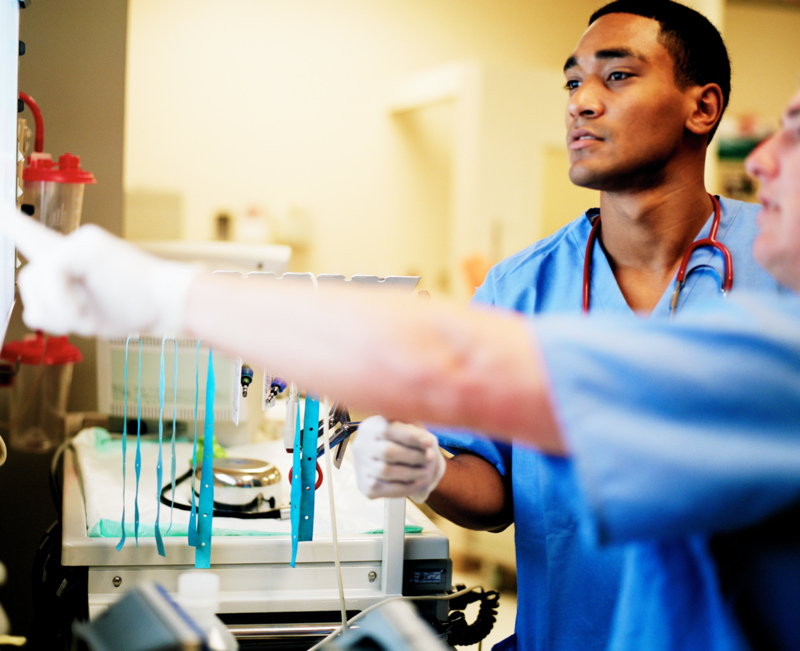
Here are some of the latest health and medical news developments, compiled by the editors of HealthDay:
Spending Will Increase Under New Health Law: Report
Under the new health care law, about 34 million more Americans will have health coverage, but health spending will increase about 1 percent over 10 years, according to a new report.
The increase in costs may be even larger if Medicare cuts in the law prove to be unsustainable, said the economic experts at the Health and Human Services Department, the Associated Press reported.
It’s possible that Medicare cuts could push about 15 percent of hospitals and other institutional health providers into debt and possibly jeopardize seniors’ access to care, warned the paper from Medicare’s Office of the Actuary.
Some cost-control measures in the law — such as a tax on high-cost insurance, Medicare cuts, and a commission to identify ongoing Medicare savings — may help reduce the rate of health cost increases after 2020, the AP reported.
“During 2010-2019, however, these effects would be outweighed by the increased costs associated with the expansions of health insurance coverage,” wrote Richard S. Foster, Medicare’s chief actuary. “Also, the longer-term viability of the Medicare … reductions is doubtful.”
The document carries a disclaimer that it does not represent the official position of the Obama administration, the AP reported.
—–
Croatian Girl Speaks Only German After Waking From Coma
After waking up from a mysterious 24-hour coma, a 13-year-old Croatian girl could no longer speak her own language but was fluent in German, a language she recently started studying.
British media reports say the girl can understand Croatian but can only respond in German and requires a translator to communicate with her family.
Doctors can’t explain the girl’s condition, but experts suggest it may have something to do with damage to the language production centers of the brain, ABC News reported.
“These kinds of events are infrequent so being able to really study them in a consistent way is difficult,” said Dr. Gregory O’Shanick, president and medical director of the Center for Neurorehabilitation Services in Virginia. However, there are “situations where people learning a second language will be better able to speak that language post-injury.”
The reason may be that language knowledge is housed in different brain areas, he told ABC News.
People store information about how to speak their native language on the left side of the brain, while the right side of the brain is dominant in the ability to speak other languages. So an injury to the left side of the brain may lead to better recall of the second language, O’Shanick explained.
—–
Vatican Funds Adult Stem Cell Research
The Vatican announced Friday that it will fund adult stem cell research.
The $2.7 million donation will go to a University of Maryland School of Medicine-led effort looking at the potential use of adult stem cells to treat intestinal diseases and possible other conditions, the Associated Press reported.
The project is in the early stages and it would be years before it might produce any clinical treatments, officials said.
While it supports the use of adult stem cells, the Vatican opposes embryonic stem cell research because it requires the destruction of embryos, the AP reported.
—–
Doctors Report World’s First Face Transplant
Doctors in Spain say a young man who received the world’s first full-face transplant is recovering well from the operation.
The Vall d’Hebron Hospital in Barcelona said the patient received a new nose, skin, jaws, cheekbones, teeth and other facial features, the Associated Press reported.
He lost his face in an accident five years ago. Since then, he’s had to breathe and be fed through tubes and had nine surgeries before the face transplant, the hospital said.
It gave no more details about the patient or about how he lost his face, the AP reported.
Ten partial face transplants have been carried out worldwide, but this is the first involving a whole face, hospital officials said.
—–
Major Study Will Examine Cell Phone Health Risks
The world’s largest study on the health effects of cell phones will include 250,000 users in five European countries and last between 20 to 30 years, say British researchers.
The goal of the Cohort Study on Mobile Communications (Cosmos) is to provide definitive answers on what, if any, health risks are associated with cell phone use, BBC World Service reported.
Previous research has concluded there’s no risk, but some experts say those studies may have been too short to detect longer-term health problems, such as cancer.
“The best thing we can do as a society is to start now to monitor the health of a large number of users over a long period of time — that way we can build up a valuable picture as to whether or not there are any links in the longer term,” said co-principal investigator Dr. Mireille Toledano of Imperial College London, BBC reported.
The study will look at brain cancer, other forms of cancer and brain conditions, such as neurodegenerative diseases.
“We will also be monitoring things like if there’s a change in the frequency of symptoms such as headaches, tinnitus, depression or sleep disorders,” Toledano said. “These are things that people commonly report in association with their mobiles and these are things we are going to be following up on over time as well.”

